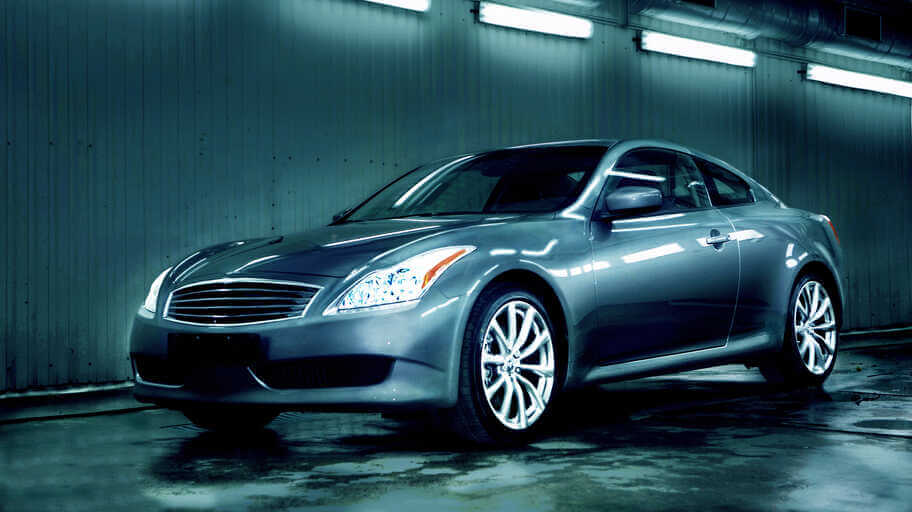You may be wondering: is there a minimum credit score to buy a car?
Your scores can significantly influence your ability to get an auto loan. Higher scores may increase your odds of obtaining an auto loan with more complimentary terms and reduced rates.
Even with a not-so-perfect credit score, it is still possible to qualify for an auto loan. Every lender demands diverse credit score requirements. Some lenders allow you to have a co-signer with good credit to increase your chances of getting approved for an auto loan.
Better Credit Means Lower Costs
Your credit score will dictate the interest rate you qualify for when you apply for a car loan. It is easier to budget for a car when you know your interest rate and what to anticipate on average.
The table below clearly illustrates the average interest rate you will likely get on a new or used car, depending on your credit score.
| Credit score | New car – Average APR | Used car – Average APR |
| 781-850 | 2.34% | 3.66% |
| 661-780 | 3.48% | 5.49% |
| 601-660 | 6.61% | 10.49% |
| 501-600 | 11.03% | 17.11% |
| 300-500 | 14.59% | 20.58% |
The better your credit score is, the lower the interest rate and costs. An 835 credit score rating will award a low interest rate of 2.34 for a new car and 3.66% for a used one instead of the high interest rate on 509 credit score loans.
You can use a car payment calculator to determine the monthly payment for different loan terms when you have the correct interest and credit score information.
You will only know your exact rate when applying for a car loan since different lenders have varied offers. To get the best deals, you need to compare the rates from different lenders.
What Is a FICO Auto Score?
Most lenders use a FICO score to check your credit score. According to FICO themselves, over 90% of the leading lenders use it. Though Fico is a multipurpose credit score, it has various versions, with the FICO Score 10 being the latest version.
Some scores are specific to the type of industry, such as the auto lending industry, which uses the FICO Auto Score 10. While FICO and VantageScore are the most preferred credit-scoring models used for car loans, every lender can choose on their own which model to use.
The FICO Auto Score refers to a particular score that ranges from 250 to 900 points. It focuses more on previous car loan payments than the traditional FICO score. It also highlights any past repossessions or auto-loan bankruptcies previously filed.
When it comes to FICO Auto Scores, the system initially calculates your base scores then modifies the calculation depending on particular auto risks associated with an individual. For lenders, these scores help decide the possibility of you making timely payments for your auto loan.
Other Factors Beyond Credit Score Can Help You Buy
If you are worried about getting a car loan with a below 735 credit score auto loan rate, then you can relax; you can still qualify for an auto loan. There are some things you can do to show you are eligible for a loan.
1) Present Your Financing Options
You can get different financing options from various financial institutions and compare car loan rates. Once you get the financial selection that suits you, you can proceed to get preapproved to make the process seamless.
2) Offer a Handsome Down Payment
A big down payment will mean a lower interest rate and lower monthly car payments. It can even be a big help when it comes to balancing a bad credit score. A big down payment may make you seem less risky even with your low credit score.
3) Show Proof of Your Financial Stability
When you show proof of your stability in other areas of your financial life, lenders are more likely to see you as less of a risk. An example of such evidence are documents showing how long you have lived at your address, or your most recent paycheck. Such supporting evidence may help lower your rates even for a 645 credit score auto loan.
4) Submit Any Professional Licenses
Lenders significantly esteem applicants who hold professional occupancy licenses. Lawyers, doctors, licensed techs, plumbers, or financial planners may appear to have a high and stable income, and are therefore perceived as less risky to loan to.
Build Your Credit Before Car Shopping
A 581 credit score personal loan is usually a fair score, but if you have a bad credit score, there are several things you can do to improve your scores. With better scores, you will get lower rates to help in purchasing your car. Here are some of the things you can do to increase your credit score:
-
-
-
- Pay bills on time and avoid letting bills go 30 days past due.
- Constantly check your credit report to confirm any legitimate charges and dispute the inaccurate ones.
- Pay down most of your revolving debt, including credit cards and different lines of credit.
- Do not close your old credit cards, especially if they do not charge any annual fee. Closing will reduce the overall limit, damaging your overall credit limit.
- Do not apply for any other credit at least within six months of applying for a loan.
- Request for credit card limits only when needed.
- To diversify the kinds of credit cards you have, you can open specific credit or loans when you need them.
-
-
Improving your credit to the level where you can get a car loan may be a lengthy process in some cases. It is, however, a worthwhile process as you can purchase a car of your choice without breaking your bank account.
Your Car Loan Can Help You Build Better Credit
Lets say you’ve now received your car loan, and you’re wondering whether it will help build your credit? The answer to this question is hypothetically yes. There are two ways your car loan can help build better credit, including:
1) Payment History
Your payment history simply refers to your track record of timely payments of your bills. It is the single key factor that influences your credit score. Conventional lenders will notify the three major credit bureaus of your repayments.
These credit bureaus use your payment history to calculate your credit scores.
Dealerships that provide buy-here, pay-here financial options do not report your payments to the credit bureaus. The loans offered by these lenders typically have high interest rates, and they do not help increase your credit since transactions go unreported.
2) Credit Mix
The credit mix is if you have both installment loans and revolving credit. Installment loans are loans with regular payments over a set time. Revolving credit refers to varying transactions with no particular timeline, such as credit cards. Credit cards will help increase your score when you add an auto loan.
What’s Next?
If you are looking for a used or new car, your credit will play a crucial role in financing alternatives. It is, therefore, worth being aware of what your credit score is and where you stand on acquiring an auto loan. You can check your credit score for free from the different credit card companies as well as online.
It is ideal to get multiple auto loan quotes from banks or credit unions before visiting any dealership. This will help you get the most suitable deal.
Featured Image: Megapixl








